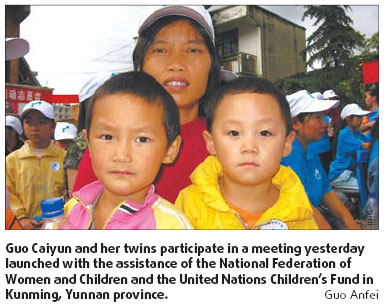
Yvette Cabrera
Columnist
The Orange County Register
ycabrera@ocregister.com
Editor's note: This is the first in a series of columns on human trafficking in Orange County.
Clickity click, clickity click. High heels tap the sidewalk in a pedicured staccato that sweeps across this forgettable Garden Grove shopping center. Curious onlookers can't help but stare from nearby storefronts.
The clatter comes from nine Vietnamese women who hastily walk out of a chiropractic office, their chic slip-ons shimmering in the hot afternoon sun. Dressed in form-fitting jeans and summery tank tops, the women climb into a waiting van that will deliver them to the Westminster Police Department.
They've just been caught in a police raid inside a chiropractic office that officials allege was a front for a brothel.
"This is the biggest one I've ever seen by far, locally," says Westminster police Lt. Derek J. Marsh, of the Aug. 7 sting operation.
Yet, rather than arrest the women for prostitution, Marsh says they were charged with being in a house of ill-repute, a lesser offense. Marsh also made sure the women were treated courteously, weren't handcuffed, and were given access to victim advocates and services.Why the special treatment?
The answer – and reason for this carefully orchestrated operation – lies with Marsh, who knows that what you see is not always what it appears to be: A brothel can also be a prison without bars for women trafficked illegally into Orange County, enslaved by pimps and forced to prostitute their bodies.
We may not see them, but victims of human trafficking live anonymously among us in our sunny cities, sexually exploited in residential brothels, or ferried to shopping centers where sex is sold alongside coin-laundries, cell phone shops and dry cleaners.
Human trafficking is a growing problem worldwide that experts say has worsened as the global financial crisis deepened this year. The federal government estimates that annually between 14,500 and 17,000 people are trafficked into the United States, Marsh says.
"No one wants to face the facts that those types of things exist. If they know about it, it's 'not in my backyard' so I don't have to worry about it," says Marsh, co-director of the Orange County Human Trafficking Task Force, created in 2004.
"…But the reality is it's there. It may not be as prevalent as the government estimates; it may be more prevalent."
Sandra Morgan, the task force's administrator, says Orange County has become a destination for sex traffickers because of the county's wealth. And while most of the county's cases have involved sexual exploitation, Morgan says the demand for labor in sectors such as the hotel and restaurant industries, has also made them magnets for traffickers.







